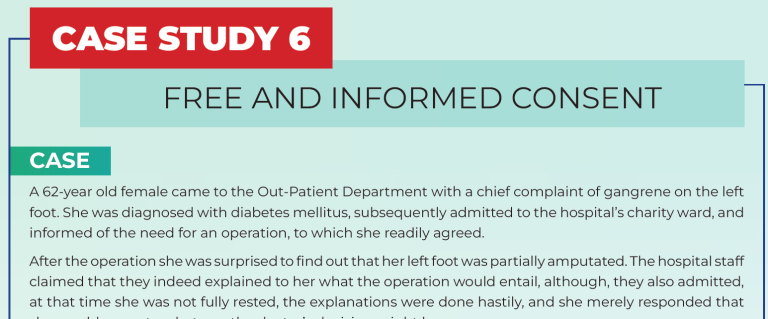Picture this: you are in the bathroom taking a leak. Suddenly, you feel a sharp pain as you urinate. If this has happened to you, you might have felt a kidney stone pass through your urinary tract.
While this is considered as one of the most painful medical conditions that 2.3% of the Philippine population suffer from, it can still be treated if detected early on. This article will discuss what kidney stones are and the types of effective kidney stones treatment available to the public.
What are kidney stones?
Kidney stones, also known as renal calculi, are hard masses made of minerals and salts that usually form in the kidneys. They can also develop anywhere along the urinary tract, which comprises of the kidneys, ureters, bladder, and urethra. This often occurs when the urine is concentrated, allowing minerals to stick together and crystallize.
Other symptoms of kidney stones include blood in the urine (characterized by a red, pink, or brown tinge), urine discoloration, vomiting, nausea, foul-smelling urine, chills, fever, frequent need to urinate, urinating in small amounts, and sharp pain in the back or lower abdomen.
Types of kidney stones
Different types of crystals form kidney stones. Knowing the kind can help determine the cause and reduce your risk of developing more.
Calcium
One of the most common types, calcium stones are often comprised of calcium oxalate (sometimes consisting of calcium phosphate or maleate). Oxalate, a naturally-occurring substance in food, is manufactured by the liver.
Reducing intake of oxalate-rich food like potato chips, peanuts, chocolate, beets, and spinach can lessen the likelihood of developing this type of stone. Getting the right amount of calcium in the diet can also help prevent stones from forming.
Uric acid
Struvite
Cystine
Treatment for kidney stones
The appropriate treatment for kidney stones will depend on the type of stone and its size, and whether it is blocking the urinary tract or not. After consulting with a medical professional, they will recommend one of the following treatments:
Medical expulsive therapy (MET)
Extracorporeal shock wave lithotripsy (ESWL)
For larger kidney stones that cannot pass on their own, extracorporeal shock wave lithotripsy is recommended. A machine will be used to deliver shock waves through the skin to the stone, breaking it into tiny pieces that can pass through the urine.
This procedure will take around 45 minutes to an hour and can be done after the administration of light anesthesia or painkillers, as this type of treatment can cause moderate pain. The success of ESWL is highly dependent on the stone size and location and may require more than one session to be effective.
Percutaneous nephrolithotripsy or percutaneous nephrolithotomy
These similar surgical procedures are recommended for those with larger kidney stones or stones that could not be sufficiently broken down by other treatments.
Both procedures begin with a small incision in the lower back, with a nephroscope inserted through your skin and directly into your kidney to either remove (nephrolithotomy) or break (nephrolithotripsy) the stone. Both procedures are performed under general anesthesia and will require a 1 to 2 days’ stay in the hospital for recovery.
Ureteroscopy
In a ureteroscopy, a ureteroscope is inserted into the urethra to remove stones located in the ureter or kidney. From there, special tools are used to either remove the stone or break it up into smaller pieces using laser.
The doctor may then place a stent in the ureter to relieve the swelling and promote healing in the area. This procedure is done under local or general anesthesia.
Open surgery
Keep your kidneys in the clear
Kidney stones may seem like a simple condition, but this can escalate and create severe problems for your urinary tract while causing unbearable pain. It is essential to consult with a doctor to prevent the formation of these stones or treat them as early as possible. Prioritize your renal health with the help of Makati Medical Center’s Section of Nephrology and the Department of Surgery.











